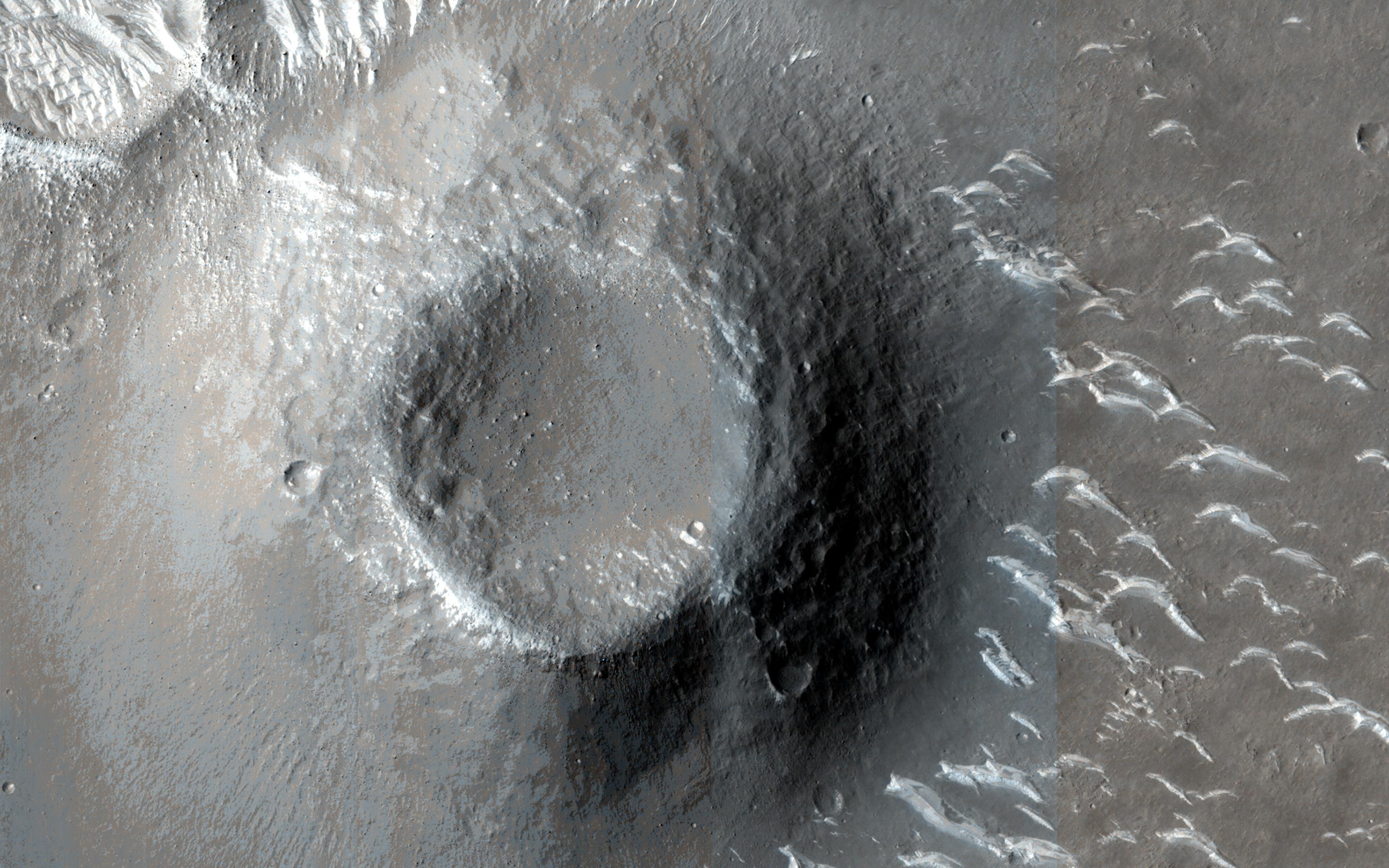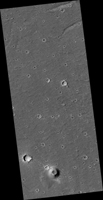
|
The Zhurong Rover Explores Utopia Planitia
- Click the image above for a larger view
- Full-Res JPEG (2880 x 1800) (699.5 kB)
- Full-Res TIFF (2880 x 1800) (15.1 MB)
Caption:

Map Projected Browse Image
Click on image for larger version
The Chinese Zhurong rover, named after the god of fire in Chinese mythology, landed in Utopia Planitia in May 2021 . Utopia Planitia is a volcanic region located in the low-lying Northern Hemisphere of Mars.
The expansive, flat, smooth plains of Utopia are dimpled by impact craters, volcanic domes, light-toned ridges made of wind-blown materials , and troughs. If the rover continues to drive south from its landing site, this HiRISE view shows the kind of terrain and features Zhurong may explore.
The map is projected here at a scale of 25 centimeters (9.8 inches) per pixel. (The original image scale is 28.8 centimeters [11.3 inches] per pixel [with 1 x 1 binning]; objects on the order of 86 centimeters [33.9 inches] across are resolved.) North is up.
Background Info:
The University of Arizona, in Tucson, operates HiRISE, which was built by Ball Aerospace & Technologies Corp., in Boulder, Colorado. NASA's Jet Propulsion Laboratory, a division of Caltech in Pasadena, California, manages the Mars Reconnaissance Orbiter Project for NASA's Science Mission Directorate, Washington.
Cataloging Keywords:
| Name | Value | Additional Values |
|---|---|---|
| Target | Mars | |
| System | ||
| Target Type | Planet | |
| Mission | Mars Reconnaissance Orbiter (MRO) | |
| Instrument Host | Mars Reconnaissance Orbiter | |
| Host Type | Orbiter | |
| Instrument | High Resolution Imaging Science Experiment (HiRISE) | |
| Detector | ||
| Extra Keywords | Color, Crater, Impact, Map, Volcano | |
| Acquisition Date | ||
| Release Date | 2021-09-29 | |
| Date in Caption | ||
| Image Credit | NASA/JPL-Caltech/University of Arizona | |
| Source | photojournal.jpl.nasa.gov/catalog/PIA24914 | |
| Identifier | PIA24914 | |
